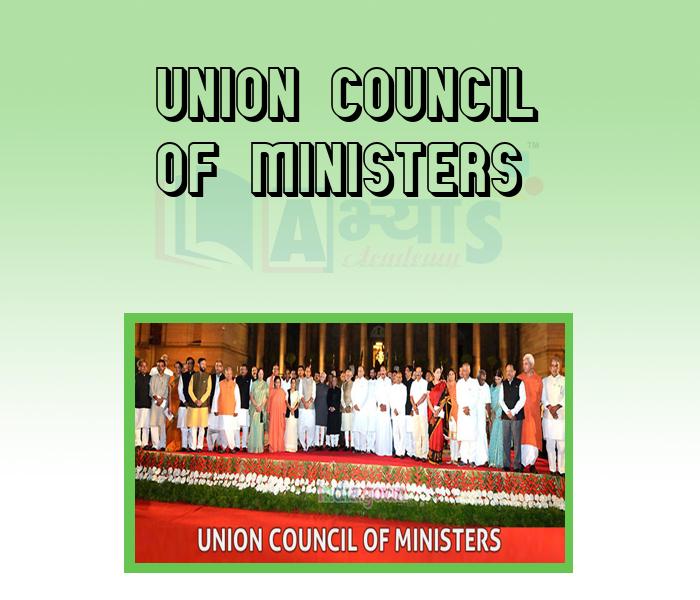Union Council of Ministers











Council of Ministers
It is the official name for the body that includes all the ministers, it usually has 60 to 80 ministers of different ranks. The Council of Ministers have collective responsibility. The Council of Ministers comprise:
Appointment of Council of Ministers:
After the appointment of the Prime Minister, the President appoints the council of Minister on the advice of Prime Minister. They are usually from the party or coalition that has majority in Lok Sabha. Some times, a person who is not a member of Parliament can also become a minister. But such a person has to get elected to one of the Houses of Parliament within 6 months of his appointment.
According to the Constitution of India, the total number of ministers in the council of ministers must not exceed 15% of the total number of members of the Lok Sabha. Ministers are appointed by the Prime Minister on the advice of the President.
______________________ is a small body, it consists of 15 to 20 important ministers. | |||
| Right Option : C | |||
| View Explanation | |||
Which of the following are correct : (a) Cabinet Ministers have important Ministries of the Central Government such as . Home, Defence, Finance, Foreign and other Ministries. They Play an important role in policy making. (b) Minister of State can be under independent charge or under any Cabinet Minister. | |||
| Right Option : C | |||
| View Explanation | |||
Which of the following are correct : (a) The Council of Ministers governs collectively as an Executive Committee of Parliament and a representative of Parliament. (b) The term Cabinet was used by the 44th Constitutional Amendment 1978. (c) Article 78 states that "There shall be a Council of Ministers to aid and advise the President, headed by the Prime Minister." | |||
| Right Option : A | |||
| View Explanation | |||
Students / Parents Reviews [10]
Abhyas is a complete education Institute. Here extreme care is taken by teacher with the help of regular exam. Extra classes also conducted by the institute, if the student is weak.

Om Umang
10thMy experience was very good with Abhyas academy. I am studying here from 6th class and I am satisfied by its results in my life. I improved a lot here ahead of school syllabus.

Ayan Ghosh
8thI have spent a wonderful time in Abhyas academy. It has made my reasoning more apt, English more stronger and Maths an interesting subject for me. It has given me a habbit of self studying

Yatharthi Sharma
10thIt was good as the experience because as we had come here we had been improved in a such envirnment created here.Extra is taught which is beneficial for future.

Eshan Arora
8thOne of the best institutes to develope a child interest in studies.Provides SST and English knowledge also unlike other institutes. Teachers are co operative and friendly online tests andPPT develope practical knowledge also.

Aman Kumar Shrivastava
10thBeing a parent, I saw my daughter improvement in her studies by seeing a good result in all day to day compititive exam TMO, NSO, IEO etc and as well as studies. I have got a fruitful result from my daughter.

Prisha Gupta
8thAbhyas Methodology is very good. It is based on according to student and each child manages accordingly to its properly. Methodology has improved the abilities of students to shine them in future.

Manish Kumar
10thMy experience with Abhyas is very good. I have learnt many things here like vedic maths and reasoning also. Teachers here first take our doubts and then there are assignments to verify our weak points.

Shivam Rana
7thMy experience with Abhyas academy is very good. I did not think that my every subject coming here will be so strong. The main thing is that the online tests had made me learn here more things.

Hiya Gupta
8thIt was a good experience with Abhyas Academy. I even faced problems in starting but slowly and steadily overcomed. Especially reasoning classes helped me a lot.
